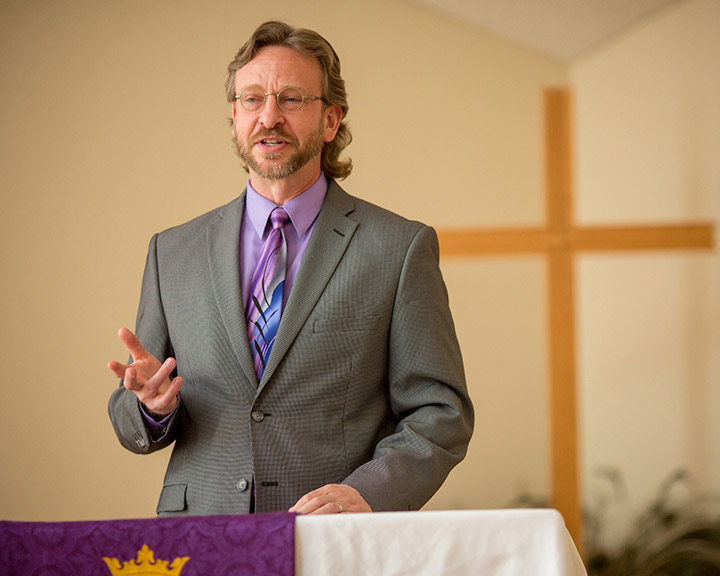
BY REV. DR. RIDDICK WEBER |
Many Christian Churches, including the Moravian Church, celebrate Epiphany on January 6. On this day we remember the ways in which God revealed God’s Son. God made the Messiah, the Anointed One, known not only to the Jewish people who had long been expecting this deliverer, but to the Gentiles as well. We normally observe this day, not on January 6, but on the Sunday following or closest to it. Then Epiphany often slips out of our minds, with Ash Wednesday and the beginning of Lent being the next important event on the Liturgical Calendar.
This makes sense if we consider Epiphany a day, but Moravians officially consider Epiphany a season. Unfortunately, the prepositions we use to describe the Sundays and their relationship to the season don’t really help us with this understanding. Our lectionaries and Daily Texts refer to the Sundays of Easter (because they are part of the Easter Season) and to the Sundays in Lent (because these Sundays happen during Lent, but are not counted as part of the forty days of Lent), but to Sundays after Epiphany, as if those Sundays are not related to this bygone event. How might considering Epiphany a season impact our understandings of Epiphany, or the revelation or manifestation of God to all of creation?

Image courtesy of Robert Koorenny on Unsplash.com
For me, taking Epiphany seriously as a season gives us new opportunities to explore that particular Epiphany season, because unlike most liturgical seasons, the number of Sundays of Epiphany can vary greatly. The length of Epiphany can vary because, even though it has a fixed beginning— January 6— Epiphany ends the day before Ash Wednesday. The beginning of Lent can therefore be as early as February 4 and as late as March 10. This means that Epiphany may has as few as four Sundays and as many as nine.
When Epiphany has only four Sundays, it is a very short season, shorter than every other season except the Christmas Season. These years can remind us of the urgency of sharing the Good News, of engaging in mission, before we turn our hearts to the season of Lent, preparing for and pondering on the manifestation of God’s love through the death and resurrection of the person who birthday we recently celebrated.
This year, however, we are blessed with seven Sundays in Epiphany, a relatively long season of Epiphany. We’ll begin by reading Matthew’s telling about the magi searching for Jesus or Jesus’ baptism in the Jordan, and we will close by reading Matthew’s account of the Transfiguration of Jesus. We will have five Sundays in between when Matthew, along with some prophetic writers and the Psalmists, will invite us to look at the many ways God reveals Godself through the life and teachings of Jesus and how he fulfilled God’s promises. The Liturgy for Epiphany and World Mission in the Moravian Book of Worship prepares us for this broad understanding by drawing on Biblical language and imagery that comes from Genesis, the prophets, the Psalms, the gospels, Paul’s writing, and even the book of Revelation. The writers of the liturgy draw from the full breadth of God’s written word to help us see the many ways God reveals Godself.
This year, I invite us all to consider not only how God has revealed Godself through the person of Jesus Christ, but also how God might want to be revealing Godself through us today. How might we work for God’s justice? How might we share God’s love? How might we be part of the Epiphany our friends and neighbors or any other part of God’s creation might be looking for?
About the author

Riddick Weber is the Associate Professor of the Practice of Pastoral Ministry at Moravian Theological Seminary. He believes God delights in revealing Godself, most fully through the person of Jesus Christ and presence of the Holy Spirit, but also through the Bible, music, friends and family, good food, good beverage, and good conversation, many of which often occur simultaneously. He also believes God delights when we work for God’s justice and share God’s love with those who have been told they are outside of it.
Requests for republishing, click here
Want to volunteer to write for us? Click here









